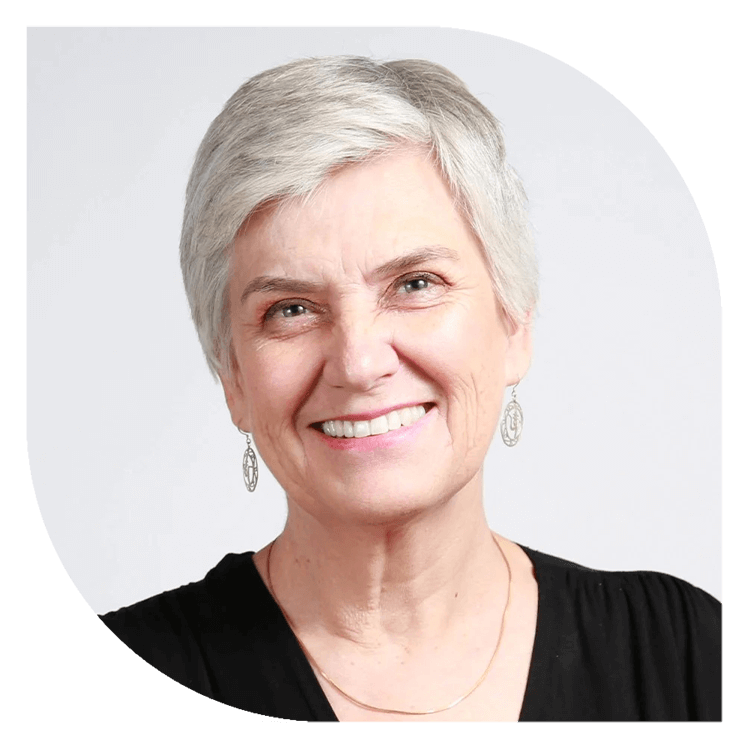A recent CBC article highlighted the dramatic rise in the number of people suffering from eating disorders since the onset of the Covid pandemic. Eating disorders are complex brain-based illnesses which have a high mortality rate and have serious effects on quality of life. They are not a lifestyle choice, nor are they impossible to treat. When people receive appropriate treatment early in the course of their illness they have an excellent chance of full recovery. However, the longer the eating disorder persists the more difficult it becomes to treat.

Accessible support for people with eating disorders
Body Brave is a Hamilton-based charitable organization providing first-line support and treatment for people struggling with eating disorders. My daughter Sonia and I co-founded Body Brave five years ago, and it has grown rapidly ever since. Sonia had struggled with a severe eating disorder for eight years, beginning when she was a young adult. This was an agonizing time for her and for our family as we struggled to access services to help her. She did recover eventually, but neither of us could forget the difficulties she faced during her illness. We decided to start an organization that would focus on providing accessible support and low-intensity treatment for people with eating disorders.
We offer low-intensity therapy including groups and one-on-one services, which are provided without cost to our clients. Since the COVID-19 pandemic, rates of people struggling with eating disorders have dramatically increased. At Body Brave, we have expanded our services to try to address this need. We recently rolled out a customized online Recovery Support Program which provides people with immediate access to a variety of online resources and supports. Almost 3000 people have signed up for this service, which provides assistance and information to people as soon as they need it. The Recovery Support Program helps to bridge the gap for people waiting for hospital-based services.

Finding treatment is a challenge
Access to appropriate and timely treatment is a huge problem for people struggling with other mental illnesses as well. The stressors caused by the pandemic include social isolation, financial stress, and disruption to education and employment. Many people whose mental health has been affected by the pandemic are young, with their whole lives ahead of them. Young people struggling with a mental illness can experience devastating effects on their quality of life. Some quit their jobs, drop out of school or university, or develop severe depression or anxiety because of the illness. People who care for those struggling with mental illness face enormous stress as they attempt to support their loved ones.
Government-funded services for people with all forms of mental illnesses usually have long waiting lists, making it very difficult for people to access the type of treatment in the time that they need it. Nonprofit and charitable organizations are filling vital gaps in mental health services, yet they often struggle to access sustainable funding. For example, at Body Brave, we do not charge for any of our services, as we don’t want people to face a financial barrier to obtaining support. We rely on grants and donations to provide care for our clients – we receive no annualized government funding. Like so many other non-profits working in the mental health field, Body Brave faces a continuous struggle to keep afloat.
The landscape of treatment services for people with mental health struggles in Ontario is fragmented. People with mental illness and their families often face a daunting task of trying to find out what services are available, where they are located, and what the barriers are to accessing these services. Once a treatment program is identified, there may still be long waiting lists to face.

Impacting the crisis in mental health care
What are some possible solutions to the crisis in mental health care in Ontario? One important issue is system navigation. We need easier ways of understanding what services are available in the area where we live, so that people do not end up on a waiting list for a service that is not appropriate for them. Secondly, since young people are often badly affected by mental health issues, we need a particular focus on mental health resources for this age group. In Ontario, Youth Wellness Hubs are one promising initiative. There are 22 Youth Wellness hubs in the province which provide wrap-around services for young people including primary health care, mental health services and even assistance with employment and housing. Thirdly, we need better coordination between government and nonprofit organizations to avoid duplication of services and to allow for a more integrated approach to mental health.
Finally, a “stepped care” approach to mental health treatment is vital. Community-based, low-intensity treatment services can fill an important gap in the continuum for care for people with mental health issues. A significant expansion of such services in Ontario would provide first-line treatment and support for people early in the course of their illness. For those people who are seriously ill, specialized hospital treatment is essential, although this is only needed for a small percentage of those who struggle with mental illness. For others with mental illness, longer-term residential treatment in a supportive environment can be life-saving.
Organizations such as Eli’s Place and Body Brave are both focused on providing services to fill gaps in the current system – Body Brave by providing community-based, low-intensity treatment, and Eli’s Place by working towards residential treatment for people with more enduring forms of mental illness. In summary, Ontarians suffering from any form of mental illness must be able to access the level of treatment that they need, when they need it.
Eli’s Place will be a rural, residential treatment program for young adults with serious mental illness. To learn more about our mission and our proven-effective model click here.

Karen Trollope-Kumar | Friend of Eli’s Place
Karen Trollope-Kumar, MD, Ph.D., CCFP, is a family physician who currently works as the Chief Medical Officer at Body Brave, a non-profit organization focused on providing first-line treatment and support for people with eating disorders.
Body Brave’s services include group therapy and individual consultations with a family doctor or a dietitian. An online Recovery Support program provides valuable assistance to people on waiting lists for more intensive treatment.




